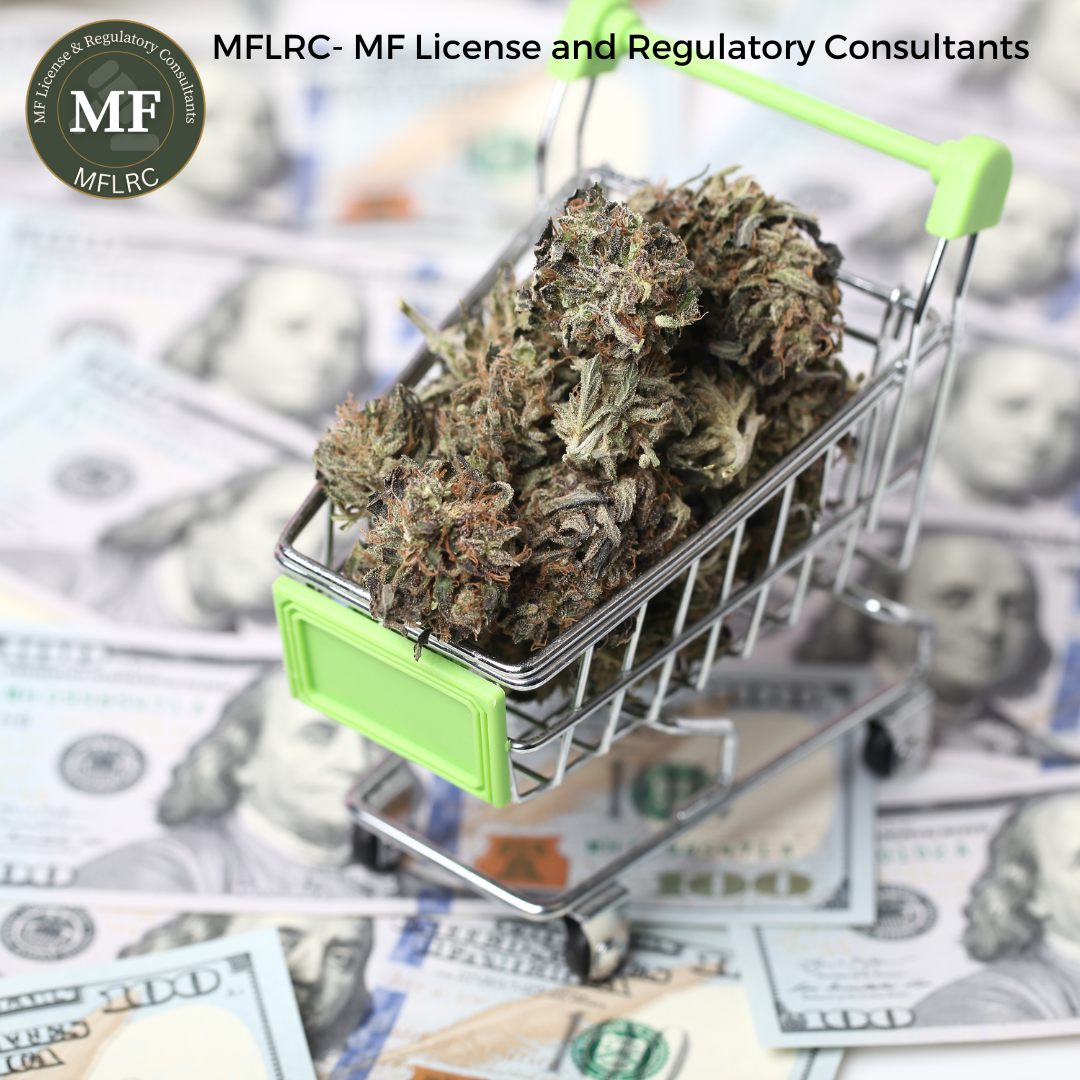Clients are able to receive a free 30-minute consultation with a company representative to get a better understanding of what they need.
Let Us Do the hard work for you

Entering the burgeoning cannabis industry may seem like a complex maze of regulations and stipulations, particularly when it comes to obtaining micro licenses for cultivation and processing.
Often shrouded in misconceptions, the journey towards launching your cannabis enterprise is paved with factual nuances that require precise navigation. As an expert entrenched in the regulatory landscape of Canada’s cannabis sector, my insights offer you a trusted compass through this intricate process.
Notably, among Health Canada‘s latest figures lies an encouraging trend: approximately 13 micro-cultivation licenses are being granted each month since improvements were made to the application procedure—a testament to a system adapting to meet market dynamics.
This blog promises to unfold these layers, unveiling how even small-scale entrepreneurs can stake their claim within this green economy. Stay with us as we guide you from seedling query to harvest-time clarity.
Let’s dive in.
Understanding Cannabis Micro Licences entails familiarising oneself with the various categories, namely Micro-Cultivation Licences for small-scale growers focusing on premium crops, Micro-Processing Licences that allow for creating edibles, extracts, and topicals on a modest scale, and Nursery Licences to specialise in propagating cannabis plants.
Each of these licences serves a unique segment within the burgeoning cannabis industry, offering entrepreneurs tailored opportunities to enter Canada’s legal cannabis market.
Micro-cultivation licences in Canada let you grow cannabis plants and seeds, but your growing area can’t be bigger than 200 square meters. This kind of licence is great for small businesses or folks who want to try out new types of cannabis on a small scale.
It’s also perfect for those focusing on craft or specialty products that don’t need a lot of space.
Health Canada has been giving out more micro-cultivation licences recently – about 13 every month since they made the process better in May 2019. If you start with one of these licences and decide to grow your business later, you can move up to a standard cultivation licence.
This change means there won’t be any limits on how much you can grow or keep anymore.
Moving from growing to making products, micro-processing licenses allow businesses to handle and change cannabis into different forms. These might be oils, edibles or creams. You can have up to 600 kg of dried cannabis with this license.
This is good for those who want to stay small but still make a wide range of things.
To get a micro-processing license, you need security clearance and must follow specific rules set by Health Canada. The application process checks all your details and looks at your place through the CTLS system.
It’s important that all the information you give is right and complete, or there may be delays.
Once you have this license, you can sell what you make to many places, like people with special permission or other licensed businesses. Unlike the limits on processing, plants and seeds don’t count towards how much product you can keep on hand — a bonus if you also grow under a micro-cultivation license at the same location.
After discussing micro-processing licences, it’s time to explore nursery licences. These special permits allow growers to start cannabis plants and get them ready for sale. If you want a nursery licence, you can grow young cannabis plants and seeds.
This means you can sell little plants to other people with licences, the Minister or individuals who have special permission.
Getting a nursery licence involves following strict rules. You must make sure your place is safe and that how you grow the plants meets high standards. Your team might also need security checks to show they are allowed to work with cannabis.
This helps keep everything honest and safe for everyone. Nursery licences let you become part of the early stages of growing and selling cannabis legally in Canada.
Before diving into the micro license application process, it’s crucial to understand pre-licensing considerations such as determining the precise grow surface area for cultivation and being clear on possession limits for processing.
These factors are instrumental in shaping a compliant and profitable cannabis operation.
To grow cannabis legally in Canada, you need to know about the space where your plants will live. For a micro-cultivation license, your growing area can’t be more than 200 square meters.
This includes all the places where the plants are placed: from seeds starting to grow, up until they’re ready for harvest.
Count every bit of space carefully. Measure where your plants will sit and make sure hallways or walkways are not part of it. If you plan on getting a nursery license too, remember that only 50 square meters can have flowering and budding plants.
It’s like fitting puzzle pieces together so everything fits just right in the allowed space.
Now with an idea of how big your grow area can be, focus on what comes next – understanding the rules about how much cannabis you can have at one time if you’re processing it.
After figuring out how much space you can use to grow, it’s key to know how much cannabis you can have. If you get a micro-processing license, the law says you can hold up to 600 kg of dried cannabis.
This limit is important because it helps make sure that businesses don’t have too much at once, which could be risky.
You must track all your cannabis carefully if you process it. You’ll need systems to keep count of everything from drying leaves to making oils or edibles. The rule about having no more than 600 kg means planning well so your stock stays within legal limits.
It’s not just about following the law; knowing this helps you run your business without trouble and serve customers safely.
Embarking on the journey to secure a cannabis micro license for cultivation and processing involves a series of meticulous steps, from meeting eligibility criteria to submitting a comprehensive application package; this guide provides a clear pathway through Health Canada’s rigorous approval process, helping aspiring entrepreneurs navigate the intricate landscape of cannabis regulation with confidence.
Getting a cannabis micro license in Canada starts with meeting specific rules. Health Canada will check if you meet all of them before giving you a license.
To apply for a cannabis micro license in Canada, you need a solid plan. Make sure all your documents are ready and meet Health Canada’s standards.
Once you’ve prepared your application, the next step is to understand how Health Canada reviews and approves it. The approval process for a cannabis micro license involves several important steps.
After getting approved by Health Canada, you might want to grow your business. A micro license can change into a standard cultivation or processing license. Here’s how:
When considering the financial aspects of obtaining a cannabis micro license for cultivation and processing, prospective applicants must account for varied costs such as licensing fees, equipment purchase, facility setup, and ongoing operational expenses.
An exploration of potential business loans tailored to the cannabis industry can provide essential capital to mitigate initial investment requirements.
Figuring out how much money you need for micro cultivation is important. Start by looking at the size of your growing space – it can’t be more than 200 square meters. This limit helps keep costs under control because a smaller area usually means less spending on things like water, lights, and seeds.
You also won’t have to pay for large teams of workers or big buildings.
You need to think about the kind of plants you want to grow too. Some cannabis plants might cost more because they need special care or extra stuff to help them grow well. And remember, even after picking what plants you’ll grow, you must follow all the rules Health Canada sets for safety and quality.
Next up is checking out loans that can help your cannabis business start strong without running out of cash early on.
Getting money for a cannabis business can be tricky. Banks often say no because the law about weed is not the same everywhere. But, you have other choices. Some companies give loans just for businesses like yours.
They understand how to work with money and rules in the weed world.
You might want to buy lights for growing plants or big machines to make oils from them. A loan can help you pay for these things. Make sure you know how much everything costs before asking for a loan.
This helps you ask for the right amount of money.
Next up, let’s look at what you should do after getting your license, to keep your business running well and following all the rules.
Once you’ve secured your cannabis micro license, the journey has just begun; meticulous compliance and reporting become pivotal to sustain operations. Crafting a robust business plan is essential for steering your venture towards profitability and growth while navigating the intricate landscape of post-licensing regulations.
Getting a cannabis micro license means you must follow certain rules and report to the government regularly. These steps help keep your business running smoothly and legally.
After ensuring you meet all compliance and reporting obligations, focus on a solid business strategy. A successful cannabis business plan is your roadmap to growth and profit. It spells out how you will run operations, attract customers, and manage funds.
You must highlight how your cannabis products stand from others. Explain whether you sell dried flowers, hashish, oils or edibles made with CBD or THC. Show that your methods for cultivating plants are top-notch and that they follow all rules strictly.
Describe the process of making sure each harvest gets checked for quality.
In your plan, make clear financial goals too. Look at how much money you need to start up and keep things going day-to-day. Talk about where this cash will come from—investors or loans—and how soon the business can pay those back.
This part should also include forecasts: estimates of future sales based on research into what customers want.
Setting this foundation is key before moving onto other parts like overcoming barriers in the industry or learning from successful cases around Canada.
Overcoming barriers to entry requires micro license applicants to tackle common challenges head-on, adopting strategies for success that range from meticulous regulatory compliance to securing adequate financing and navigating the complexities of Health Canada’s approval process.
Winning a cannabis micro license involves tackling challenges head-on. Use these strategies to improve your chances of success and navigate the licensing process more smoothly.
In the “Learning from the Pros” section, we delve into real-life success stories, analysing strategies employed by seasoned micro-cultivation growers who have navigated the intricacies of obtaining a cannabis micro license and turned their ventures into thriving enterprises.
Learning from those who’ve done well helps us grow. Here we look at successful micro-cultivation growers and what made them thrive.
Staying Informed and Compliant: Keep abreast of evolving cannabis regulations to ensure your micro-cultivation or processing business maintains its legal standing, seamlessly adapting to the dynamic landscape of Canada’s cannabis industry.
Dive deeper into our guide for essential insights on staying compliant while nurturing your thriving enterprise.
Cannabis rules change often. It’s crucial to stay updated to run your cannabis business well.
Staying up-to-date with cannabis regulations ensures your micro-licensing journey aligns with current laws. If you hit a roadblock or need clarification, Health Canada is ready to help.
They offer detailed guidance for those wanting a cannabis micro license for cultivation and processing. Their experts can answer questions about the rules for dried flowers, oils, edibles, and even how to handle paperwork.
You might want to know about importing or exporting cannabis for science or medical use. Health Canada has information on this too. Reach out to them if you’re unsure about what’s allowed.
They’ll also teach you about keeping records and making sure everything is reported correctly.
Getting touch with Health Canada could be through their website, by email, or sometimes over the phone. It’s important because they have all the latest updates on laws involving harvesting cannabis for medicinal purposes and more.
Following their advice will make sure your business follows every rule from day one.
Getting your micro license for growing and processing cannabis is a big step. It starts by knowing the rules like grow area limits and how much you can have on hand. You’ll need to fill out forms, meet all the requirements, and wait for Health Canada’s OK.
Keep in mind it costs money, so plan for that too. Once you’re up and running, make sure you follow all the rules to keep things smooth. Go ahead and take this path – your future in crafting great cannabis products awaits!

MFLRC is a one-stop shop for all of your Licensing, quality assurance and compliance needs. Our team has years of experience in the cannabis industry and are experts in all facets. We offer a variety of services that will save you time and money. Let us take the burden off your shoulders so you can focus on what’s important – growing your business.
Contact us Now!
Mussarat Fatima, President, and owner of MF Cannabis License and Regulatory Consultants has more than twenty years of experience in Quality Assurance, Quality Control, and Regulatory Affairs within the pharmaceutical, Food and Cannabis industries. She has a Master’s Degree in Food Sciences and Biochemistry; in addition to this, she also has a diploma in pharmaceutical Quality Assurance, Regulatory Affairs, and Quality Control. Also, she has completed several certifications specifically in Cannabis Quality Assurance, Regulatory Affairs, and Facility management from recognized institutes in Canada.

Written By: Mussarat Fatima
President at MF License & Regulatory Consultants
Website: https://mflrc.com/
Contact: info@mflrc.com